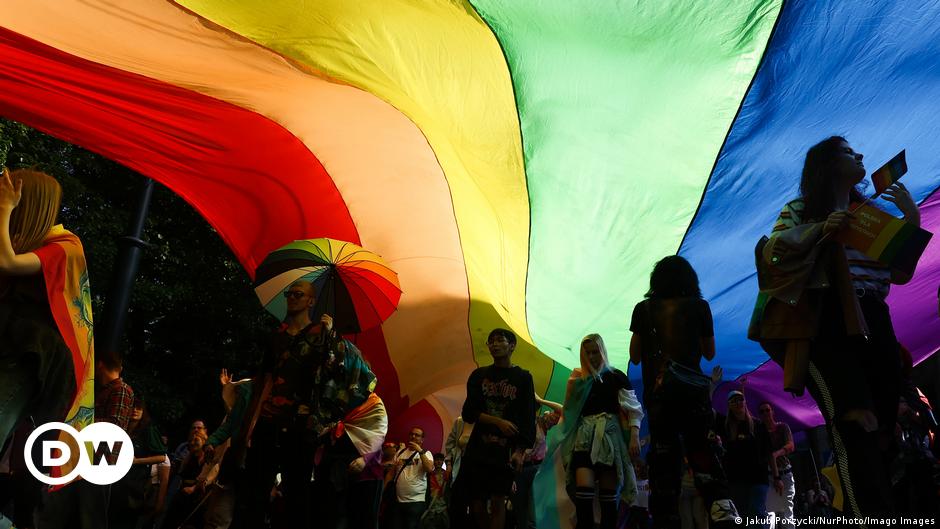LGBTQ+ activists share their stories with DW to warn against the potential consequences should nationalist and far-right parties make their expected gains in the European elections.
Monika Magashazi is a fighter. The 52-year old trans woman lives in Hungary — a country that has been ruled by Viktor Orban’s nationalist Fidesz party since 2010.
For transgender communities, the situation “has been becoming worse and worse and, unfortunately, we are desperate today in Hungary,” she told DW. She said the government was trying to portray trans people as pedophiles and criminals, using seemingly every opportunity to discriminate against them.
Struggling with her own coming out, Magashazi even attempted to take her own life. “I reached a point when I had to decide on how to live on,” she said. Thinking about her children saved her life.
“I said I will keep myself alive and try to live as a transgender woman and the father of my children — or the second attempt will be successful, and I’m going to be dead. And in that case, my children would miss their father,” she said.



This is the best summary I could come up with:
According to the Hungarian government, the legislation was meant to end legal uncertainty but did not “affect men’s and women’s right to freely experience and exercise their identities as they wish.”
But human rights groups have criticized the law, saying it puts trans people at risk of harassment and discrimination because they are forced to reveal their transgender identity every time they need to present their driver’s license or passport.
The same-sex couple, who live in Italy, told DW they are one of more than 30 families who had the birth certificate of their child contested.
This happened last year after Prime Minister Giorgia Meloni’s government ordered local authorities to stop registering children of same-sex parents with both of their names.
“Our message is really: She is that bad, and you can never trust her words,” said Santamaria, arguing that Meloni has mastered the strategy of telling people what they want to hear and lying about her true intentions.
Staszewski told DW how he and his fellow activists faced targeted attacks from politicians, media and courts under the previous nationalist-conservative government in Poland, how they felt like “second-class citizens.”
The original article contains 923 words, the summary contains 186 words. Saved 80%. I’m a bot and I’m open source!